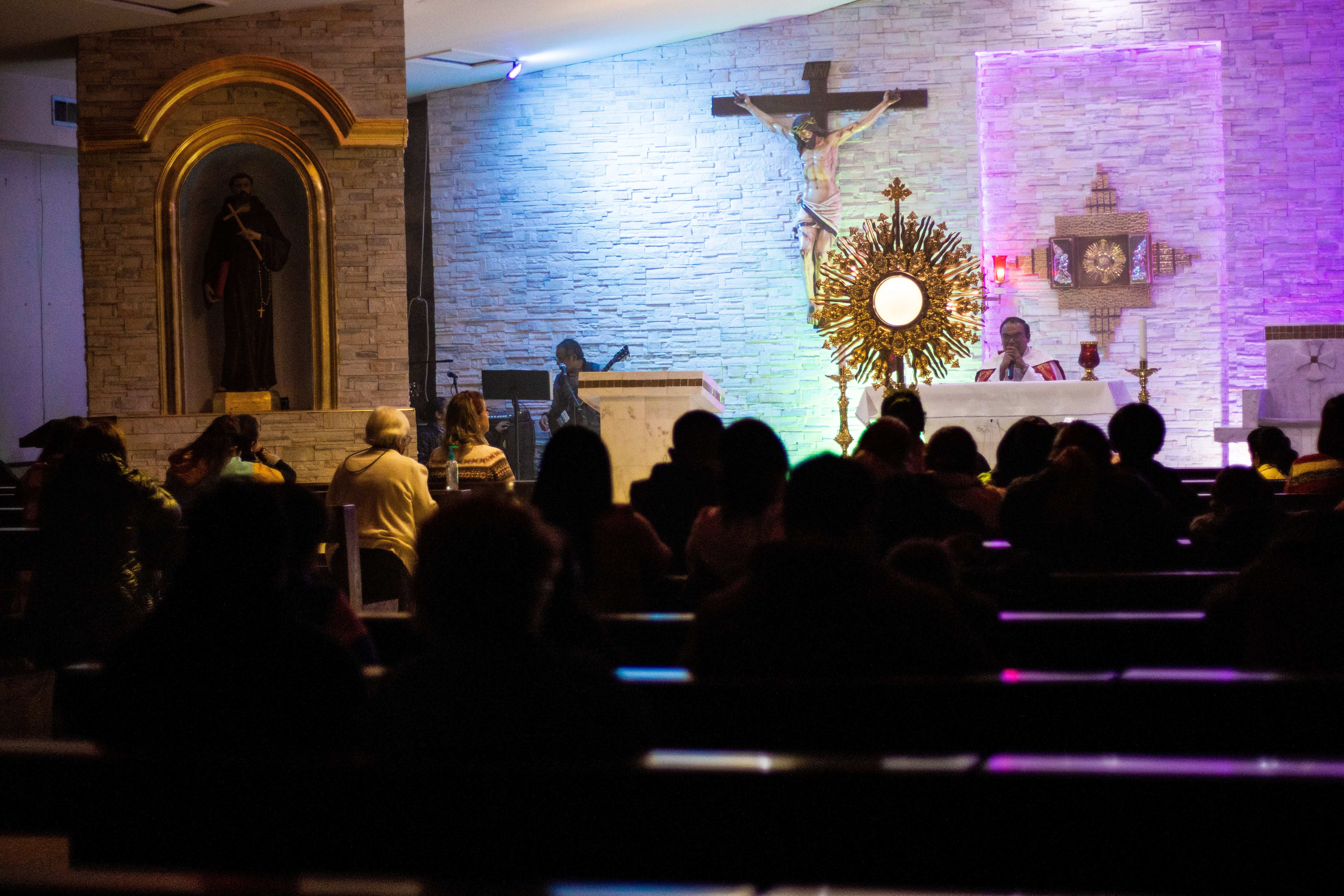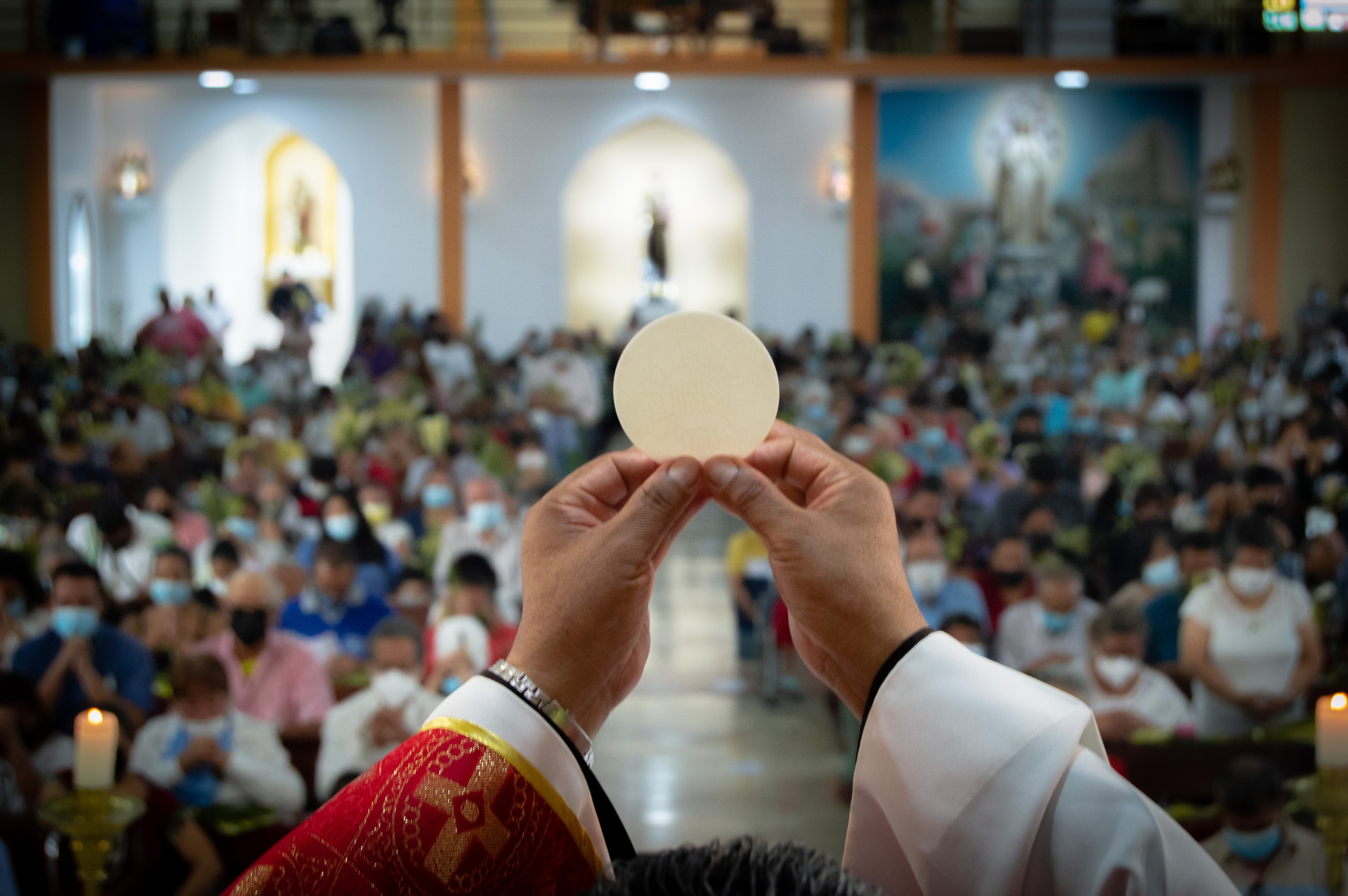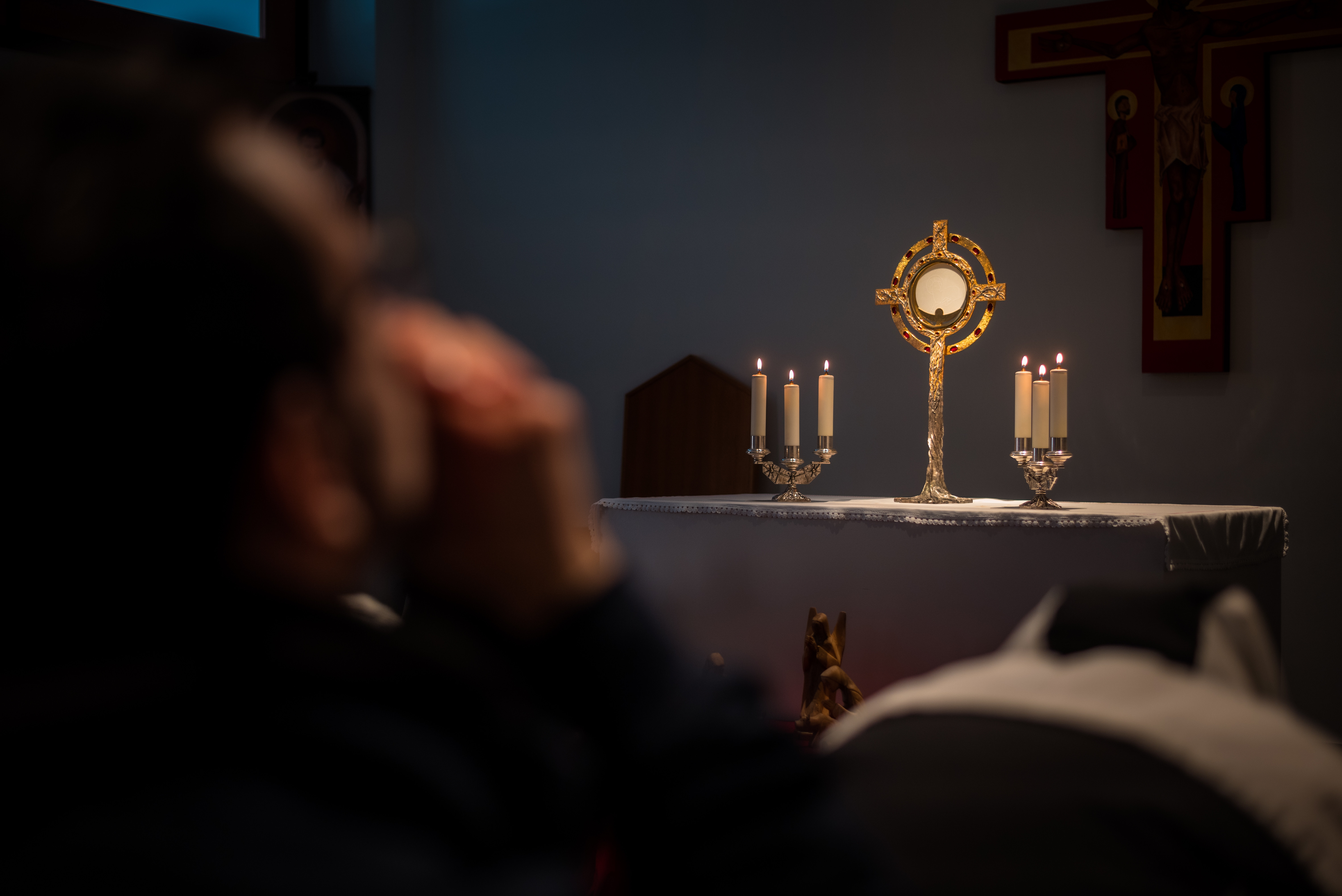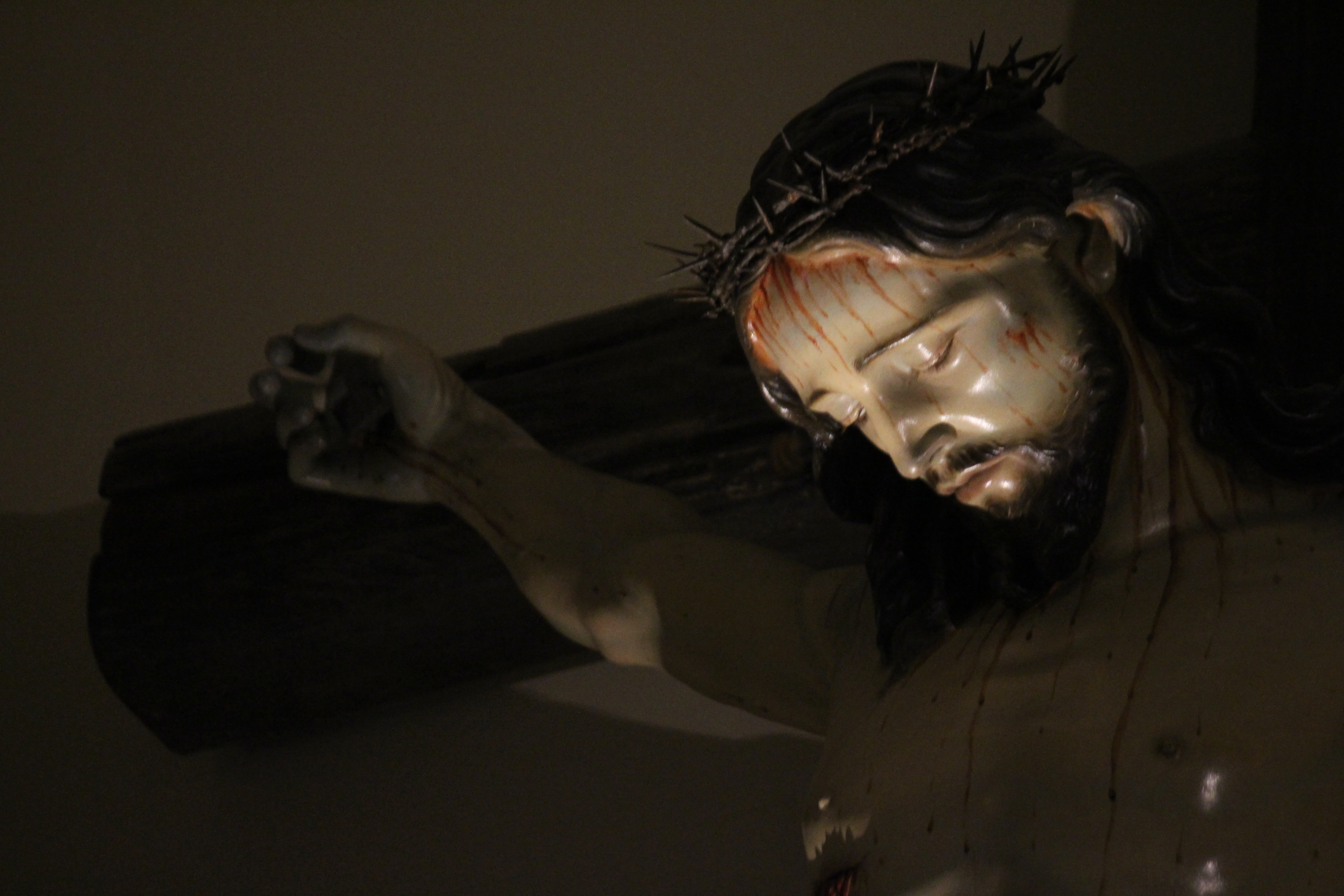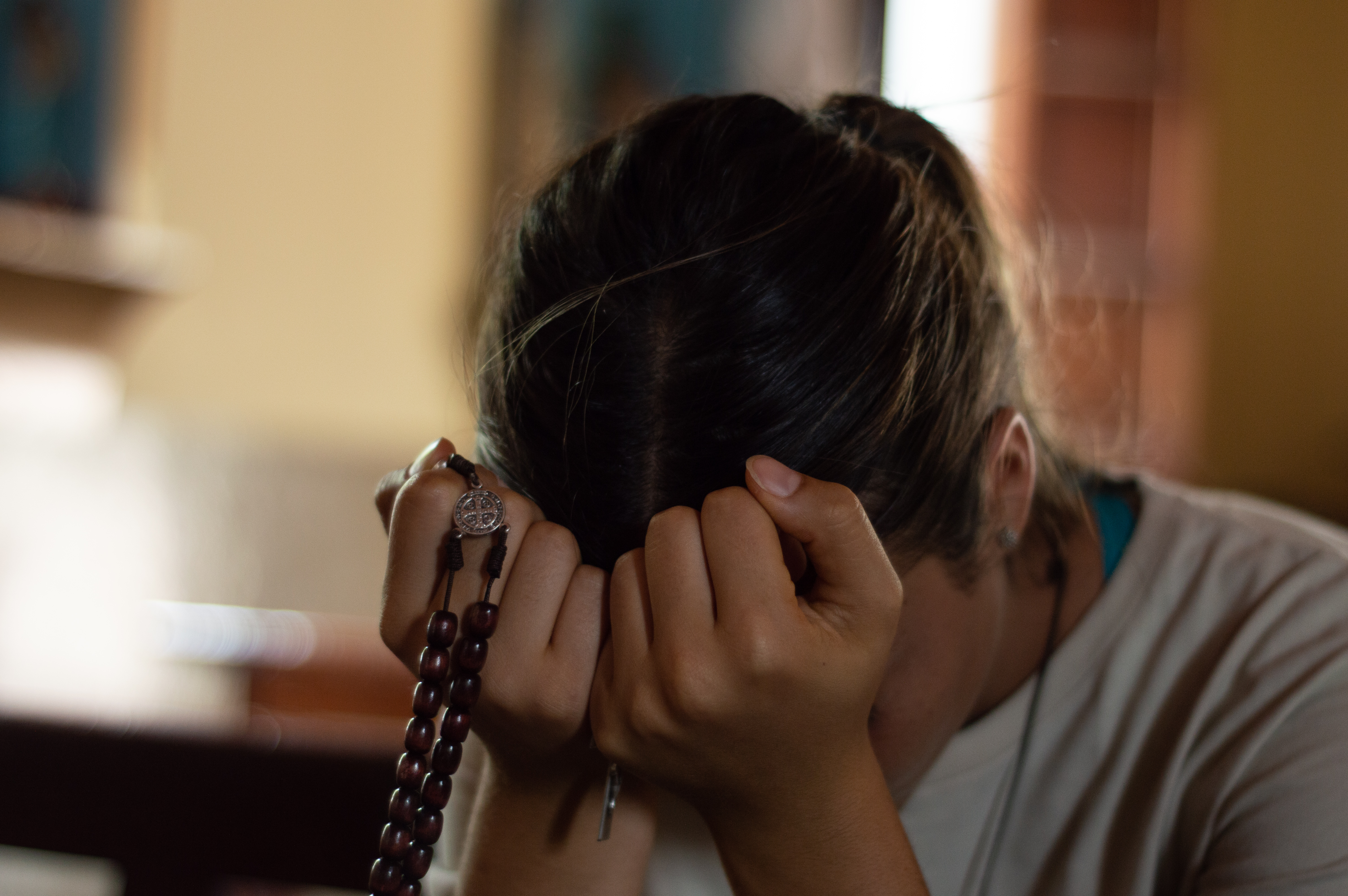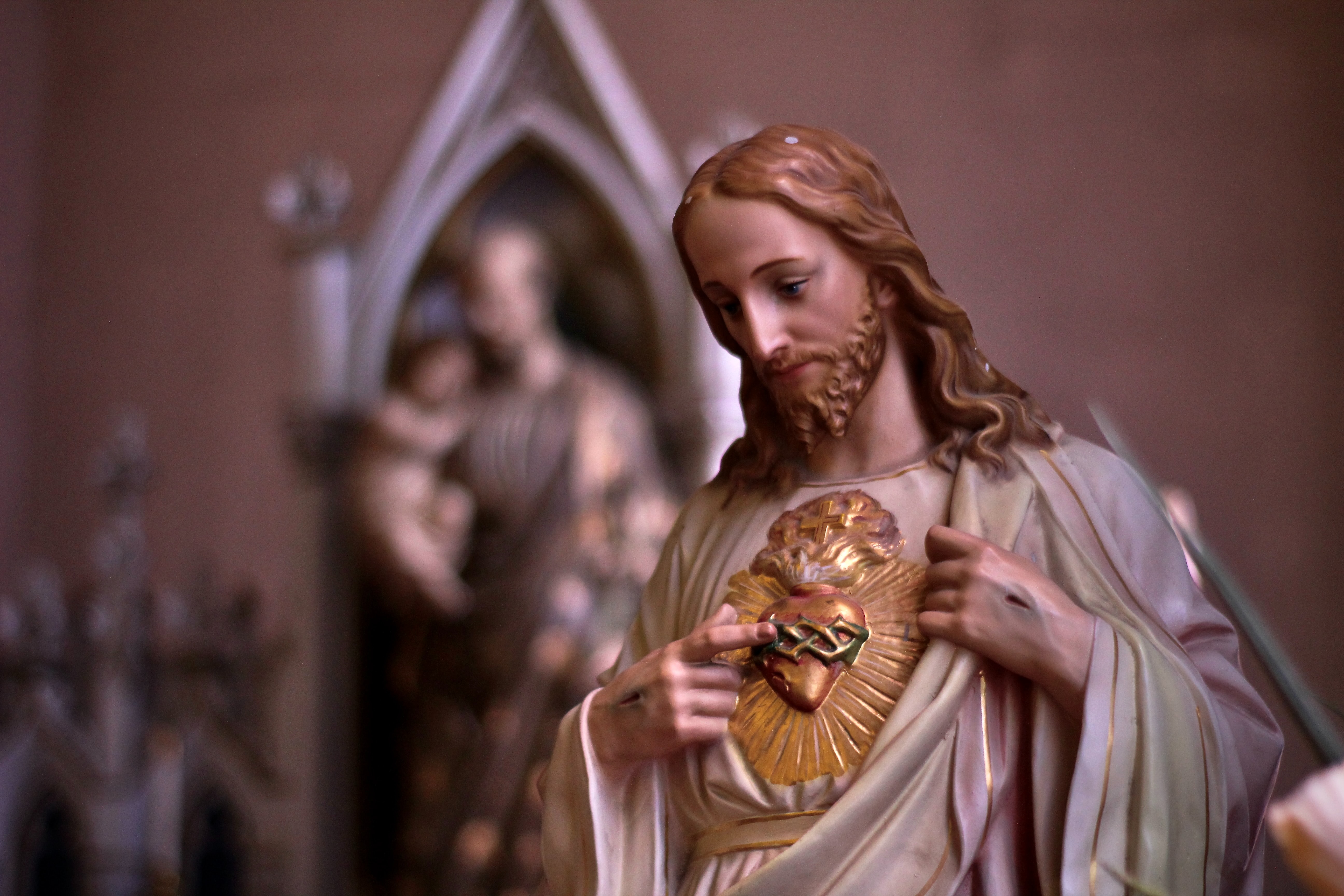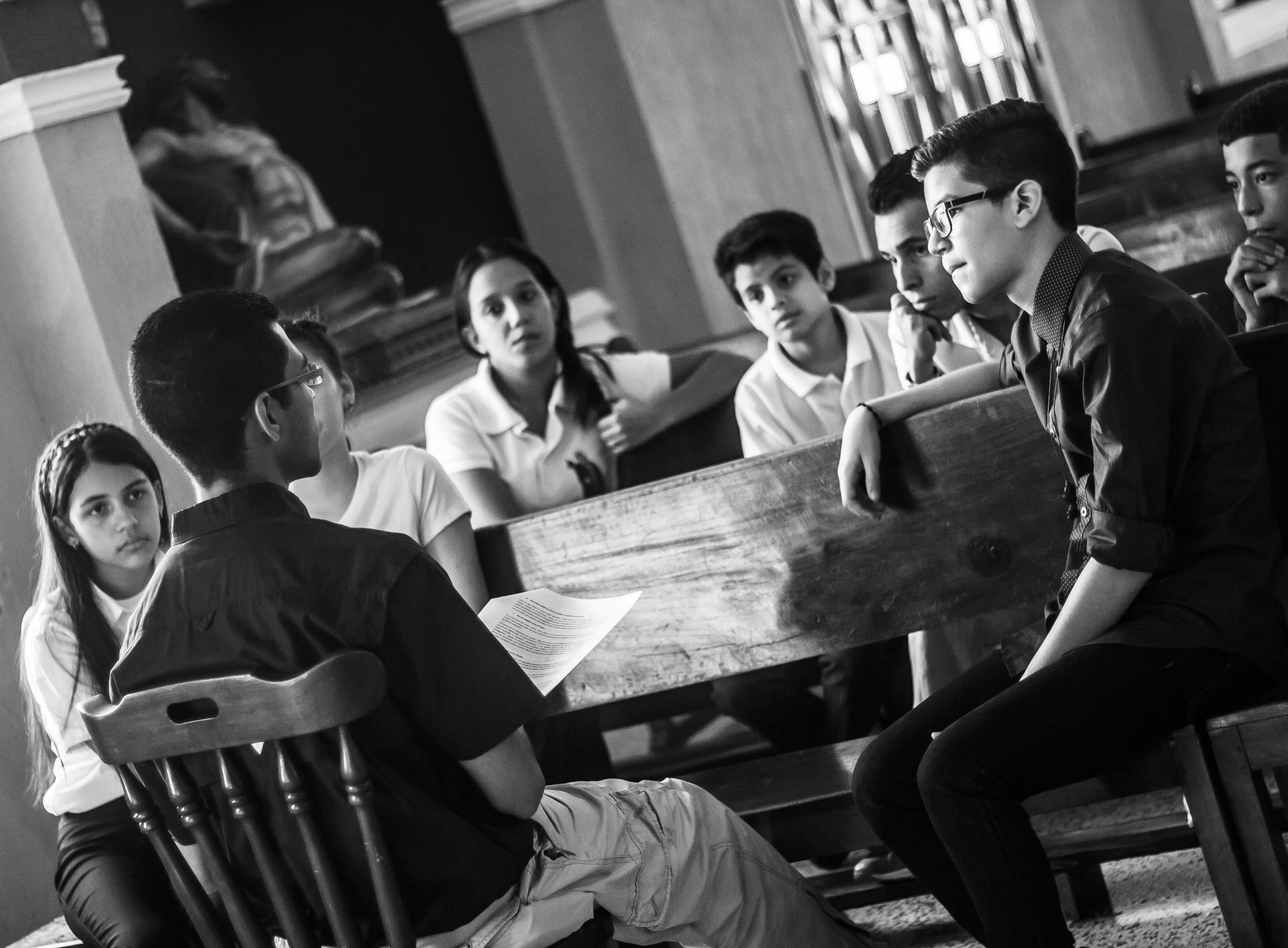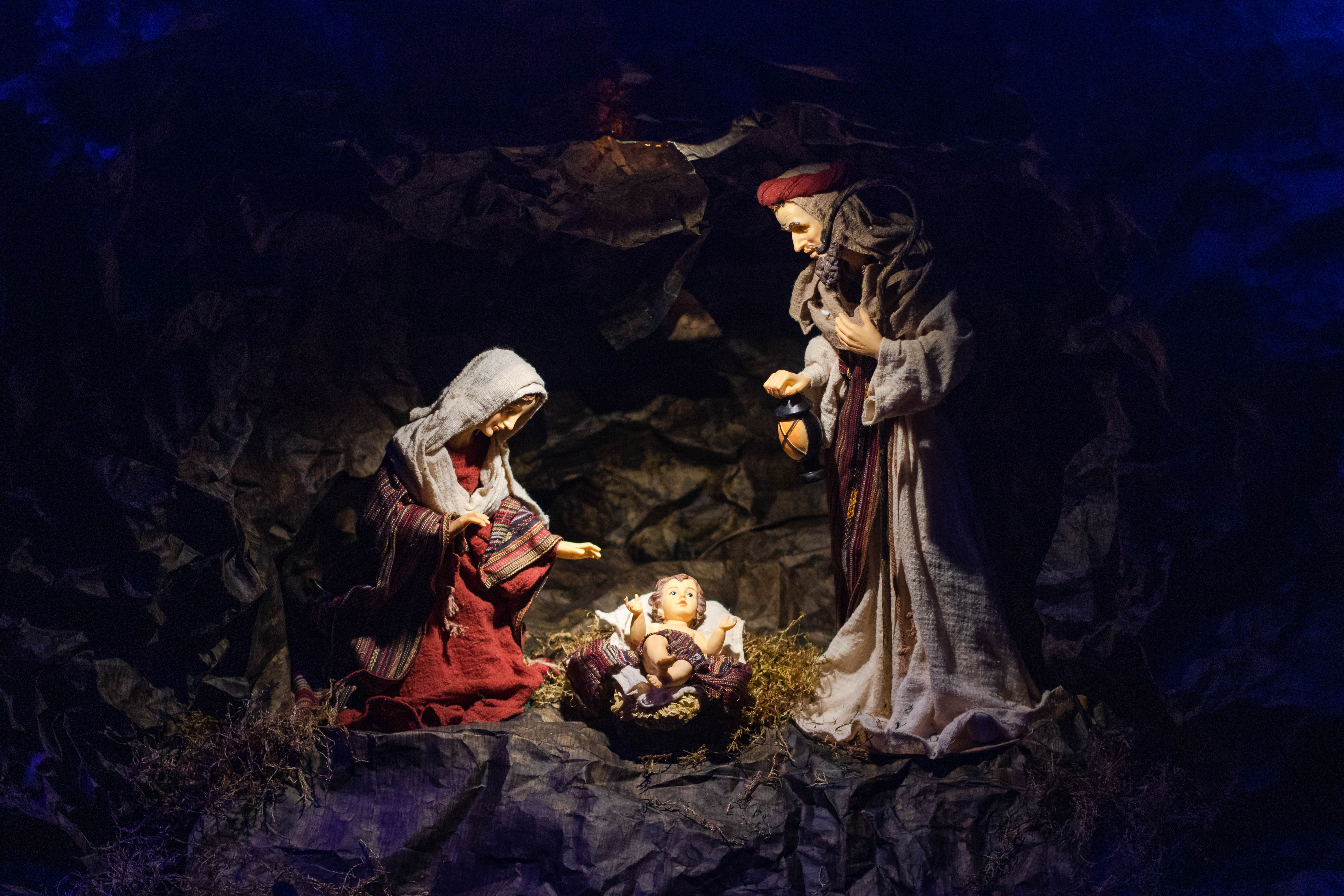In today’s Gospel reading, we hear Jesus read from Isaiah: “The Spirit of the Lord is upon me,
because he has anointed me to bring glad tidings to the poor. He has sent me to proclaim liberty to captives and recovery of sight to the blind, to let the oppressed go free, and to proclaim a year acceptable to the Lord.” He then rolled up the scroll and told those listening, “Today this Scripture passage is fulfilled in your hearing.”
Jesus was definitively stating that He was the Son of God and that He was the one sent here to save us. Most were astonished. Some were confused. And some were angry so they drove Jesus out of the town attempting to harm Him, though He passed right through the crowds.
Jesus knew the people were upset and that they didn’t believe Him, but He didn’t change His message. He didn’t say “You misunderstood Me.” He didn’t back down. Of course this would never have been the case. He was telling the truth.
So it must be when we tell the truth.
Today we hear the word truth a lot. I’ve even heard people call it “my truth,” as if the truth is different depending on who utters the words. But we have to understand that truth—a word that literally means fact—has nothing to do with a person’s opinion. There is no “my truth” and “your truth.” There is only the truth. And when it comes to religion and morality, the truth lies in God’s laws and in His Church.
As the faithful body of Christ, we know that we must not only believe the truth but teach it. There are some fundamental truths that we cannot back down from. The truth is that Christ is truly present in the Eucharist. The truth is that abortion and euthanasia are evil. The truth is that all people are valuable. The truth is that Jesus founded our Church. The truth is that we must live faithful lives if we want to spend eternity with Christ. And the truth is that anyone professing to be Catholic must stand up for these facts.
Yet we know that not all people proclaiming to be Catholic profess these truths. Some want to ignore these facts. Some want to make up lies. Some simply don’t care. And some want to obfuscate the truth so that others will believe their lies. While it is not for us to judge their hearts, it is our responsibility to teach the truths and to speak out when we witness these injustices.
Christ faced persecution and hatred. Because our world today is increasingly antagonistic to people of faith, when we teach the truth, we will face persecution and hatred as well. But if we back down, the devil wins. If we stay silent, the devil wins. If we don’t teach our children these truths, the devil wins.
So let us be strong and courageous as we strive to always speak the truth in love.
En la lectura del Evangelio de hoy, escuchamos a Jesús leer de Isaías: El Espíritu del Señor está sobre mí, porque me ha ungido para llevar a los pobres la buena nueva, para anunciar la liberación a los cautivos y la curación a los ciegos, para dar libertad a los oprimidos y proclamar el año de gracia del Señor. Luego enrolló el volumen y les dijo a los que escuchaban: “Hoy mismo se ha cumplido este pasaje de la Escritura, que ustedes acaban de oír”.
Jesús estaba declarando definitivamente que Él era el Hijo de Dios y que Él fue enviado aquí para salvarnos. La mayoría estaba asombrada. Algunos estaban confundidos. Y algunos estaban enojados por lo que echaron a Jesús fuera del pueblo tratando de hacerle daño, aunque pasó a través de la multitud.
Jesús sabía que la gente estaba molesta y que no le creían, pero no cambió su mensaje. No dijo: “Me malinterpretaste”. No se echó atrás. Por supuesto, este nunca habría sido el caso. Estaba diciendo la verdad.
Así debe ser cuando nosotros decimos la verdad.
Hoy escuchamos mucho la palabra verdad. Incluso he escuchado a personas llamarlo “mi verdad”, como si la verdad fuera diferente dependiendo de quién pronuncia las palabras. Pero tenemos que entender que la “verdad”, una palabra que literalmente significa “hecho”, no tiene nada que ver con la opinión de una persona. No hay “mi verdad” y “tu verdad”. Solo existe “la verdad”. Y cuando se trata de la religión y la moralidad, la verdad se encuentra en las leyes de Dios y en Su Iglesia.
Como cuerpo fiel de Cristo, sabemos que no solo debemos creer la verdad sino también enseñarla. Hay algunas verdades fundamentales de las que no podemos retroceder. La verdad es que Cristo está verdaderamente presente en la Eucaristía. La verdad es que el aborto y la eutanasia son malos. La verdad es que todas las personas son valiosas. La verdad es que Jesús fundó nuestra Iglesia. La verdad es que debemos vivir vidas fieles si queremos pasar la eternidad con Cristo. Y la verdad es que cualquier persona que profese ser católica debe defender estos hechos.
Sin embargo, sabemos que no todas las personas que se proclaman católicas profesan estas verdades. Algunos quieren ignorarlas. Algunos quieren inventar mentiras. A algunos simplemente no les importa. Y algunos quieren ofuscar la verdad para que otros crean sus mentiras. Si bien no nos corresponde a nosotros juzgar sus corazones, es nuestra responsabilidad enseñar las verdades y hablar cuando somos testigos de estas injusticias.
Cristo enfrentó persecución y odio. Debido a que nuestro mundo de hoy es cada vez más antagónico a las personas de fe, cuando enseñamos la verdad, también enfrentaremos persecución y odio. Pero si retrocedemos, el diablo gana. Si nos quedamos callados, el diablo gana. Si no enseñamos a nuestros hijos estas verdades, el diablo gana.
Así que seamos fuertes y valientes mientras nos esforzamos por decir siempre la verdad con amor.
 Susan Ciancio has a BA in psychology and a BA in sociology from the University of Notre Dame, with an MA in liberal studies from Indiana University. For the past 19 years, she has worked as a professional editor and writer, editing both fiction and nonfiction books, magazine articles, blogs, educational lessons, professional materials and website content. Thirteen of those years have been in the pro-life sector. Currently Susan freelances and writes weekly for HLI, edits for American Life League, and is the executive editor of Celebrate Life Magazine. She also serves as executive editor for the Culture of Life Studies Program—an educational nonprofit program for K-12 students. You can reach her at slochner0.wixsite.com/website.
Susan Ciancio has a BA in psychology and a BA in sociology from the University of Notre Dame, with an MA in liberal studies from Indiana University. For the past 19 years, she has worked as a professional editor and writer, editing both fiction and nonfiction books, magazine articles, blogs, educational lessons, professional materials and website content. Thirteen of those years have been in the pro-life sector. Currently Susan freelances and writes weekly for HLI, edits for American Life League, and is the executive editor of Celebrate Life Magazine. She also serves as executive editor for the Culture of Life Studies Program—an educational nonprofit program for K-12 students. You can reach her at slochner0.wixsite.com/website.
Feature Image Credit: Jesús Antonio Villanueva, cathopic.com/photo/24553-holy-hour
